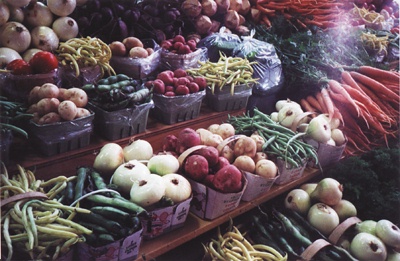All Nonfiction
- Bullying
- Books
- Academic
- Author Interviews
- Celebrity interviews
- College Articles
- College Essays
- Educator of the Year
- Heroes
- Interviews
- Memoir
- Personal Experience
- Sports
- Travel & Culture
All Opinions
- Bullying
- Current Events / Politics
- Discrimination
- Drugs / Alcohol / Smoking
- Entertainment / Celebrities
- Environment
- Love / Relationships
- Movies / Music / TV
- Pop Culture / Trends
- School / College
- Social Issues / Civics
- Spirituality / Religion
- Sports / Hobbies
All Hot Topics
- Bullying
- Community Service
- Environment
- Health
- Letters to the Editor
- Pride & Prejudice
- What Matters
- Back
Summer Guide
- Program Links
- Program Reviews
- Back
College Guide
- College Links
- College Reviews
- College Essays
- College Articles
- Back
Composting?
According to the Environmental Protection Agency, America has 3,091 active landfills (Landfills: Hazardous). It had been proposed that the United States Government should impose national food composition laws similar to those implemented in San Francisco. By enforcing composting laws, the U.S. would be able to not only reduce the amount of waste in landfills but also profit from compost, and keep America sanitary. The benefits are monumental, and the process fairly simple "This is not rocket science, this is putting food scraps into a different pile and then turning it into compost. If we can't do that, then I really worry about our ability to do some of those more complex things" (Gorn). Although it may take a while to get the program running effectively, the outcome would prove the effort to be worthwhile.
The average American citizen disposes of 4.4 pounds of rubbish every day. This soon begins to add up over the years, and is hurting the environment (Landfills: Hazardous). Composting would cut down the amount of garbage going to landfills to roughly half of what is being currently produced. A large amount of money is needed to create safe landfills and landfills are hard to find land for because they cause the surrounding land to depreciate. Landfills require a large amount of land and although the actual number of landfills since 2005 has stayed about the same, the average size of the landfills is increasing (Landfills). Thus, arable land is constantly being destroyed because of the amount of space that landfills require. As the population of America continues increasing, there is less and less land available for growing food. It has been estimated that by 2050 that food prices will increase by about 3 times of what they are currently because the arable land is being used for non-farming purposes (Landfills). If the amount of trash produced by the average citizen was cut in half, the amount of land needed for land fills would be reduced, and we could use the land gained for other purposes such as farming.
Though some may argue against starting up a national composting program, the perquisites of composting would outweigh the cost. Once the organic matter in compost breaks down it can be used as a fertilizer. Because of the nutrients present in composted material, when used as fertilizer it makes the soil very rich, and gives back nutrients to the Earth that have been leeched away by poor farming methods (How Composting. . .). The wonders compost does for soil makes it an extremely valuable commodity. America could use compost not only to improve its own land, but could also profit by selling compost to other countries (Gorn). For example, San Francisco's composting program takes the compost and sells it to the Bay Area vineyards and farms to not only improve the community, but to also profit (Gorn). Additionally, citizens would save money on their garbage costs by reducing the amount of rubbish needed to be picked up and the space needed for dumpsters of trash (Gorn).
Having organic matter in garbage's results in a foul odor because of the bacteria present in decomposing food. Citizens would help reduce the smell of garbage's by putting compostable material in separate sealed containers. The revolting smell that is usually associated with garbage would be reduced, trash rooms in restaurants and other public facilities would not stink as badly (Compost pile). Bacteria from decomposing food can also be harmful and spread disease. Composting laws would require individuals to dispose of decomposable waste in sealed containers, so rubbishes would no longer be a "malodorous sty" and spread bacteria (Gorn). The food waste would be changed from foul scraps to wonderful, clean fertilizer (Compost pile).
America would undoubtedly benefit from reducing the amount of garbage produced by her people. Composting is a relatively easy process that will enrich our soil and help make America cleaner and prevent arable land from being squandered. The land would become very rich because of the compost produced and potential food shortage problems could be prevented by keeping the soil fertile and available for farming instead of a dump for potentially hazardous material that leaks into the soil. Americans would be able to adopt the new composting laws fairly easily (as demonstrated in San Francisco), perhaps counter the damage already made by landfills, and improve the quality of living in the United States.
Works Cited
Gorn, David. " Food Recycling Law A Hit In San Francisco." NPR News n. pag. Web. 5 Jan 2010. <http://www.npr.org/templates/story/story.php?storyId=113969321>.
"How Composting Helps Nature ." Compost Heap n. pag. Web. 5 Jan 2010. <http://www.compostheap.com/index.php?option=com_content&view=article&id=10&Itemid=11>.
"Compost pile." Compost - a rotten idea. Web. 5 Jan 2010. <http://extension.missouri.edu/explore/images/g06956figure01.jpg>.
"Landfills: Hazardous To the Environment." zerowasteamerica. 21 January 2010 <http://www.zerowasteamerica.org/Landfills.htm>.
"Landfills." The Environmental Literacy Council. 2 April 2008. The Environmental Literacy Council. 21 January 2010 <http://www.enviroliteracy.org/article.php/63.html>.

Similar Articles
JOIN THE DISCUSSION
This article has 0 comments.
